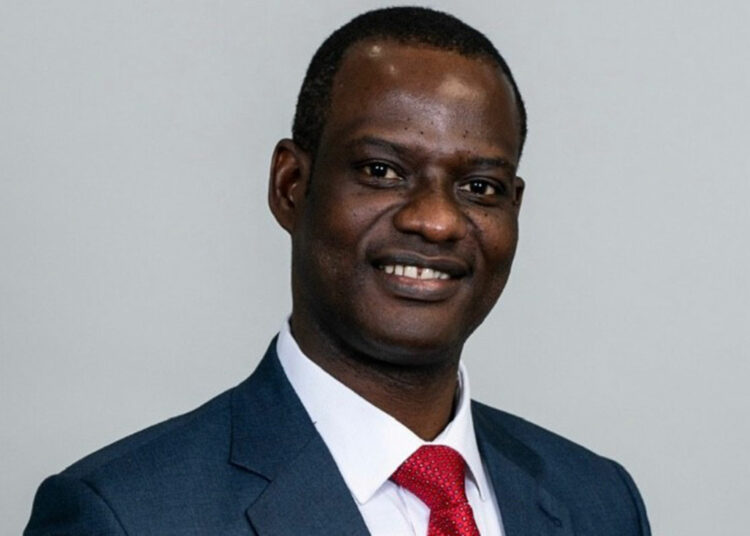Experts have lauded the proposed Tax Reform Bill presented by President Bola Ahmed Tinubu to the National Assembly (NASS) which includes the provision of zero tax for income earners of N800,000 and below.
This provision aims to alleviate tax burdens on lower-income individuals while promoting compliance and revenue generation.
This is as concerns have also been raised regarding the bill’s potential impact on Nigeria’s federal structure, with critics arguing it may centralise fiscal control and undermine state autonomy.
Some of the experts who spoke with LEADERSHIP Sunday said that if the bill is passed into law, it will be complicated to implement and would set some states in the country back, others believe the bill could be a blessing in disguise for the nation’s economy.
Explaining the tax reform, managing partner, Ascension Consultancy Services, Azeez Alatoye, who is also the Dean, Extractive Industries Taxation Faculty at the Chartered Institute of Taxation Nigeria (CITN), noted that, the bill is yet to be perfected as there are many loopholes and complication that need to be amended.
On the individual tax rate, he noted that, while the rationale behind the zero percent chargeable to taxable income of N800,000 is a welcome development and appreciated, the constitution of the country demands that every Nigerian pay tax on their income.
“Therefore, there is need for a fair charge of at least 0.5 percent minimum tax on every individual with N800,000 taxable income and below. There is also the need to consider the high cost of living and reduce the first band to be 10 per cent from the current and proposed 15 per cent on taxable income of N2.2 million,” he said.
Calling for the exclusion of telecommunication services from excise duties, Alatoye said: “No 160 (1) on Excisable Services and 10th Schedule: observation indicated that telecommunication services is put in the categories of gaming, gambling, and betting among others, and subjected to excise duty. For the inclusivity of teaming citizen in communication, this paper is recommending that the ‘telecommunication services’ be deleted both on this subsection and 10th Schedule.”
Alatoye also noted that, there are few concerns that must be addressed going forward, some of them which include making states inactive to revenue generation, tax exemptions to informal businesses, overreliance on derivatives and allocations as well as VAT increase and VAT sharing model amongst others. He furthered that the tax reform as it is presently may worsen poverty and unemployment
Meanwhile, the chairman of the Presidential Tax Reform Committee, Taiwo Oyedele has revealed that the upcoming tax reform bills will remove all subnational consumption taxes, with the exception of Value Added Tax (VAT). He noted that the goal is to simplify Nigeria’s complex tax structure and resolve ongoing challenges with the current system.
Commenting on the inequity that the tax bill may present to some states in the country, Oyedele said, “we share the sentiment expressed by the Northern Governors regarding the inequity inherent in the current model of derivation as a basis for distributing VAT revenue. This issue, in fact, affects many states across all geopolitical zones because the current derivation is mainly determined based on where VAT is remitted, rather than where goods or services are supplied or consumed.
“Our proposal aims to create a fairer system by devising a different form of derivation which takes into account the place of supply or consumption for relevant goods and services whether they are zero rated, exempt or taxable at the standard rate. For example, a state that produces food shouldn’t lose out just because its products are VAT-exempt or consumed in other states. The state where the supply originates should be recognised for its contributions. The same principle should apply to services like telecommunications—VAT distribution should reflect where subscribers are located.”
On his part, the Director and Chief Executive of Centre for the Promotion of Private Enterprise (CPPE), Dr. Muda Yusuf said, “this tax bill requires a painstaking evaluation. The reason I am saying this is that there are quite a number of beneficial provisions in the bill.
“There are aspects of the bill that have to do with the simplification of the tax administration processes. There are aspects of the bill that have to do with rationalisation of the number of taxes. There are even aspects of the legislation that even seems to be reducing some taxes.
“Admittedly, there are some provisions that are also contentious. The example is the derivation principle and all of that. What is important is for the stakeholders to study it properly so that we do not throw away the baby with the bathwater.”
Yusuf explained further that, “I think that it is very critical because we are talking about a bill of bills that run into hundreds of pages. We cannot just read one page or two or one or two provisions and because of that condemn the entire base.
“So, it requires proper understanding, it requires a diligent evaluation of it so that we can decide which elements of the bill deserve to be supported and which elements need to be reviewed. I think that is very critical. That is what is most important at this point. But as much as possible, the proposed bill or legislation should avoid contentious provisions.”
Yusuf said “I do not support inefficiency in tax administration, but I will also not support any provision that has to do with increases in taxes at this time because the pressure on the citizens and on businesses is already very high. So, this is not the time to be talking about increases in taxes either this year or even next year. Anything about tax increases should be put on hold.”
Earlier in a statement released on Monday, Oyedele had detailed how the reform aims to address issues like the multiple taxation burden, especially the parallel consumption taxes that some states impose alongside VAT.
He explained that, the new law would streamline the tax system by discontinuing all consumption taxes except VAT which, he said, would reduce the tax burden on citizens and ensure fairer distribution across states.
A major concern has been how VAT revenue will be allocated among states, with some fearing that the new derivation model could lead to lower revenue for certain regions.
Oyedele reassured that the new formula will not put any state at disadvantage. He highlighted that a per cent allocation from the federal government would be earmarked for equalisation transfers to ensure states are compensated for any shortfall.
“The five per cent cession by the FG can be set aside for equalisation transfers to cater for any shortfall under the new model. This ensures no state is worse off in the short term while boosting economic activities and revenue for all states in the long term,” said Oyedele.
The tax expert also clarified that no revenue agencies, including the Nigerian Upstream Petroleum Regulatory Commission (NUPRC) and Nigerian Customs Service (NCS), will be scrapped or merged under the reform.
These agencies, he said, will continue their regulatory functions but will no longer collect regulatory fees within their jurisdictions, as their budgetary allocations will now cover those responsibilities.
The tax reform bills are currently being reviewed by Nigeria’s National Assembly and have sparked debate, especially from northern elites who fear that the changes might not favor their region.
Currently, VAT revenue distribution follows a formula where 15 per cent goes to the Federal Government, 50 per cent to states and the Federal Capital Territory (FCT), and 35 per cent to local governments. The new bill seeks to harmonise these taxes and address the issue of tax multiplicity in the country.
Oyedele assured that the committee as well as the presidency is ready to collaborate with all stakeholders to address this concern with a view to finding a balanced solution that achieves a win-win outcome for all.
Similarly, CITN president, Samuel Abeluyi said, revenue has been a major headache in the country, adding that, with mounting debt, the wise thing to do is to make sure that, ‘we increase the revenue sources for the government.
To him, “the president has recognised the fact that he needs to put a kind of sanity within the tax system in the country. To this end, a committee was set up. It is the way to go, we need to make sure that we streamline the tax system so that the country can get benefit more from tax revenue.
“There is no point going the way we are going because we are going the wrong direction. So, I see this bill as the right way to go notwithstanding the reservation and Nigeria will move forward at the end of the day.”
He said, “the way many government agencies have been focusing on revenue collection rather than focusing on their job, the revenue collection should be the business of the FIRS.
“They have the ability to do that and they be doing that over the years instead of allowing the proliferation of Revenue collections across the various government agencies which has actually shifted from their professional practice. We need to eliminate the non-state actors who have given this country a bad name in this country over the years.”
Saying the stakeholders need to meet again, he said, “let the bill be withdrawn, let everybody make their case so that it will be a win-win for everybody. Everybody in Nigeria must be carried along. That is basic you can’t develop and leave the other people we must all be carried along and there are ways of doing this.
“The derivation issue can be sorted out giving benefit to everybody to win and once that is done then we go back to the National Assembly and ensure that the benefit of VAT which are enormous for Nigerian business to thrive.
“The way VAT was practised or administer in the country before now was not favourable to the business Community I would rather want we look at that why the politician will sort out the derivation aspect
“It is a country and we all need to develop but beyond that and sharing we I am happy to say that the VAT will promote business and that is what we need and it’s going to bring a lot of certainty to VAT administration in the country. International investors are not comfortable with the way VAT is practised in the country so we rather focus on that while the aspect of the derivation sharing can be done by the political leaders.”
But the organised private sector players, who frowned at the tax reforms bill had urged the federal government to take the bill back to the drawing board and call for public hearing in the six geo-political zones of the country to ensure that the bill is not only fair but equitable to all.
In a statement issued by the president of Kaduna State Chamber of Commerce, Industry, Mines and Agriculture (KADCCIMA), Esv. Ishaya Idi, he charged the president to reconsider the issues raised in the proposed bill, particularly, as it relates to the sharing formula proposed in the bill.
According to him, the major issue is the clause that proposed 60 per cent of the Value Added Tax (VAT) received will go to the state of collection. “This to us as a Business Member Organisation needs to be seriously and carefully looked into as it could lead to complex operation (implementation) of the bill if and when eventually it becomes an Act of Parliament,” he said.
He pointed out that a situation whereby the proposed amendments state that revenue generated from Value Added Tax (VAT) will be shared on the derivation-based model “will definitely put a number of regions at a disadvantaged position. This is because companies compute and remit VAT using the location of their headquarters and tax office and not where services and goods are consumed.
“What this means is that some states will be short-changed because major companies will pay their VAT to Lagos state, where their headquarters are instead of the states where they have their operations or location where the service and or product are consumed.
“It should be noted that VAT is consumption tax, which should be paid at the point of consumption and not the point of production. It is against this background that we wish to appeal to the President, Federal Republic of Nigeria, to reconsider this bill because of its serious implications (economic, social, and political).
“As a Chamber, we want to advise that the president uses the tax reform to include proper attribution of tax to areas of collection before derivation. For fairness and justice, the president should conduct public hearings in all the six geo-political zones. Doing these will help in no small measure in coming up with an agreeable formula and pattern on the model that will be fair, equitable, and acceptable to all.”





